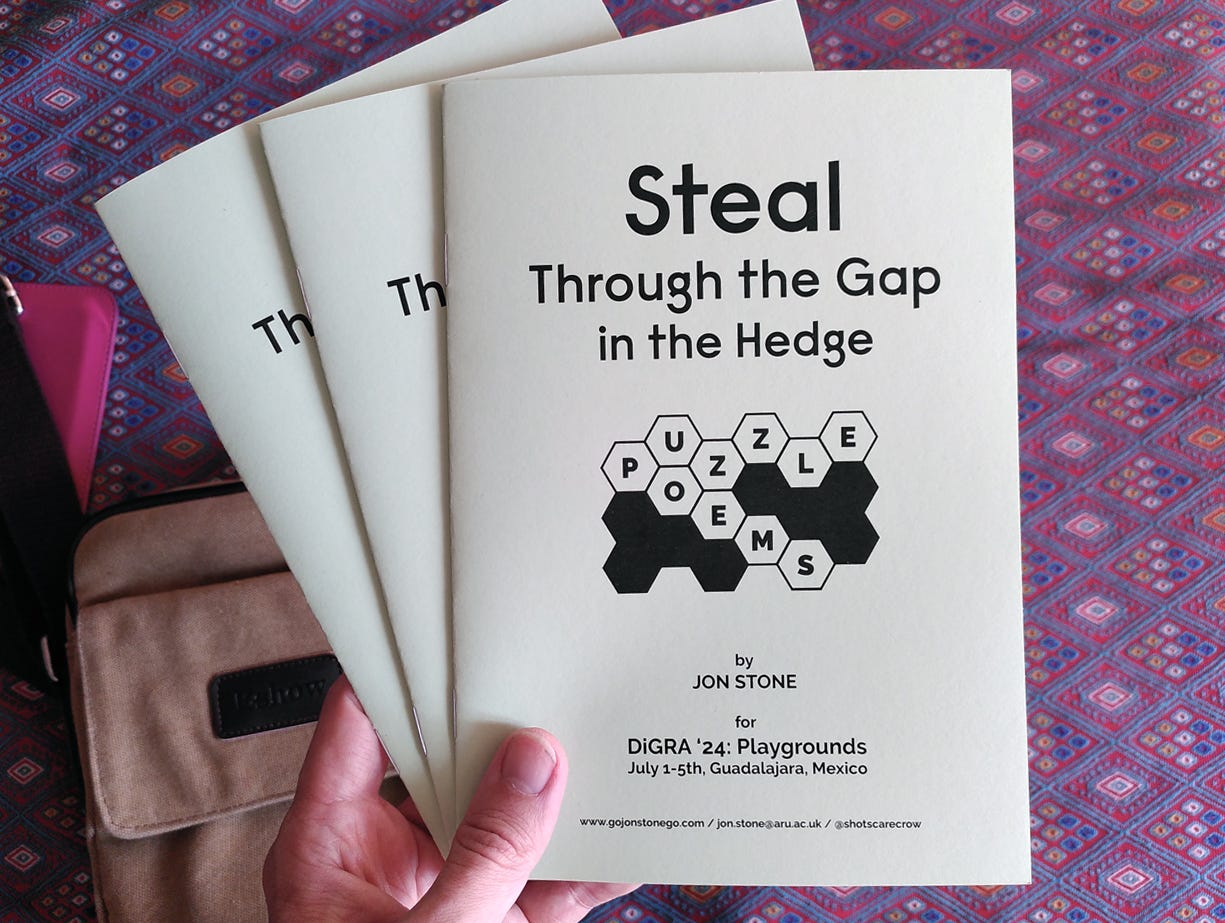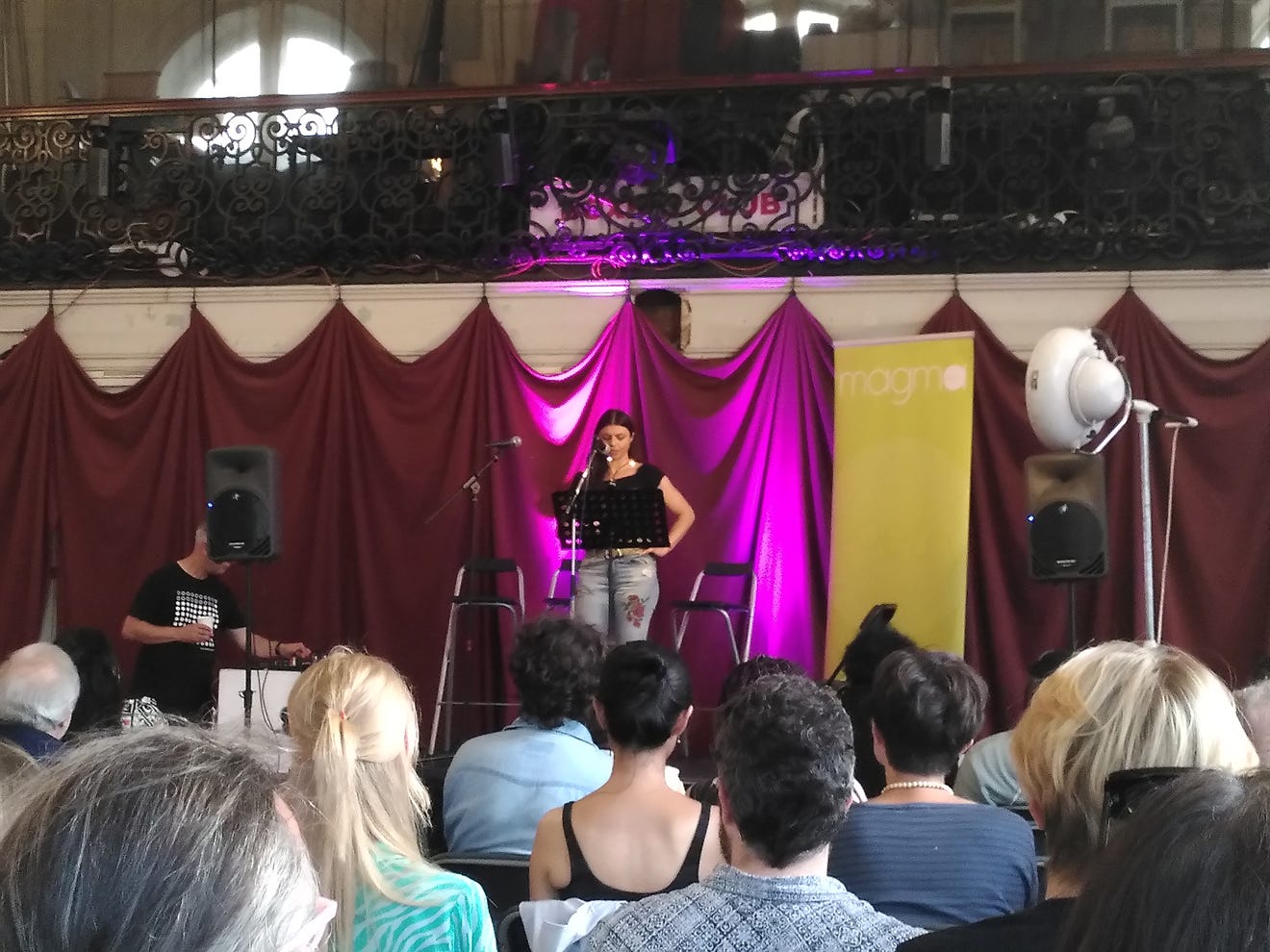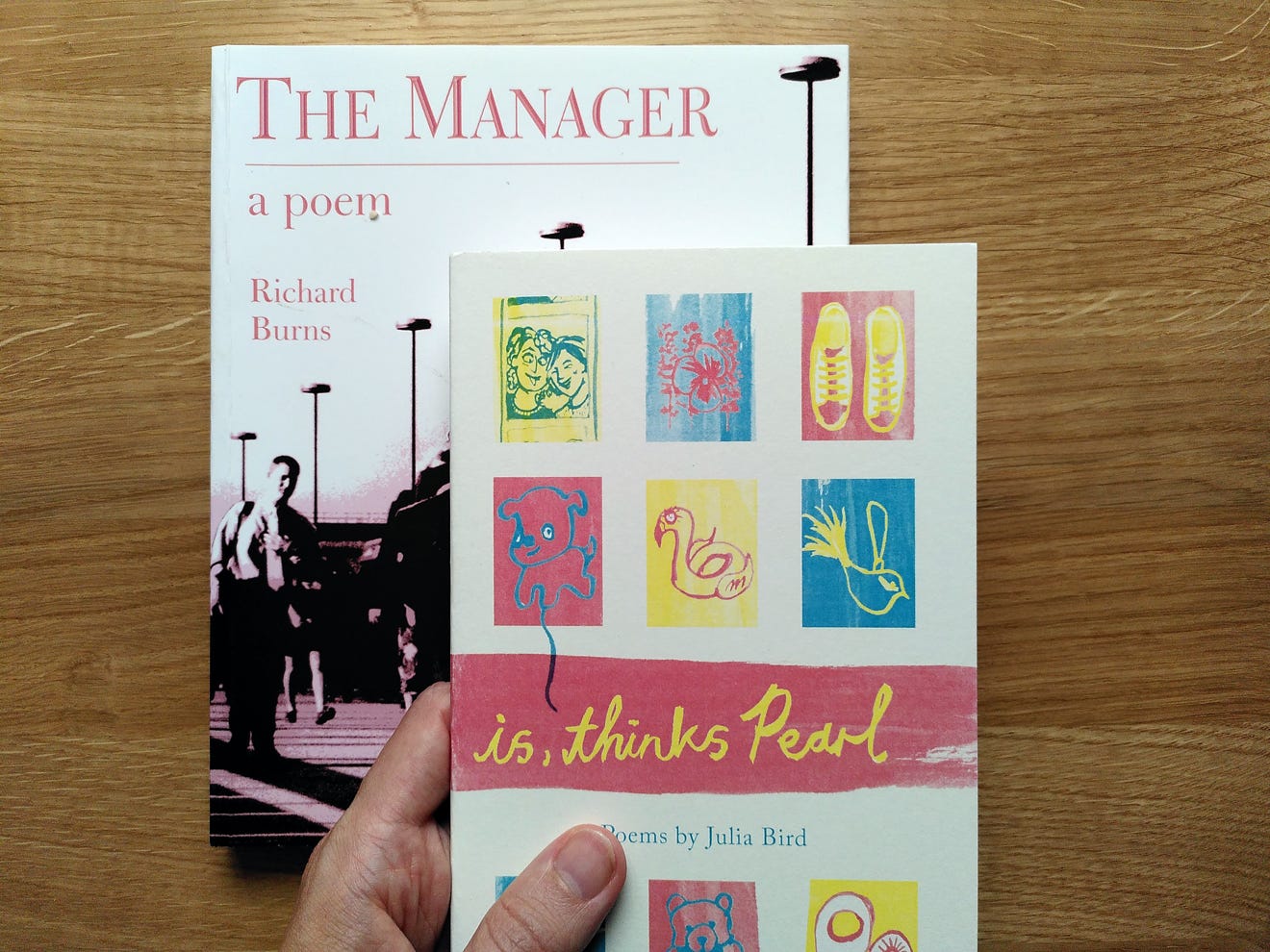It’s me. I’ve returned once again, and I’ve got a bunch of new stuff to show you.
Come Trespassing With Me
At the beginning of July I was in Mexico for the international Digital Games Research Association (DiGRA) conference. You may remember I went last year as well, with a paper on Disco Elysium and an armful of free pamphlets to hand out. This year my short talk (not a full paper) was about the idea of digital trespassing — housebreaking, grass-trampling and generally going where you’re told not to in virtual worlds. I brought another set of pamphlets, this time filled with experimental puzzle poems based on the idea of sneaking through a stranger’s garden. You can download a digital copy of Steal Through the Gap in the Hedge from here. I plan to revisit and further develop the form at some point — maybe with obstacles? Birdbaths and so on?
And Mexico? I enjoyed it a lot — especially watching El Felino and El Felino Jnr vs. Blue Panther and Blue Panther Jnr at the Arena Coliseo de Occidente!
Hear Me Say ‘Homeoteleuton’
With any luck, I’ll have some new publications to promote by the end of the year. But in the meantime, both my 2021 pamphlet Sandsnarl and my 2022 monograph Dual Wield are featured in August sales from their respective publishers (for 50% off the latter, use the code DGBSS24 at checkout). To help things along, I’ve recorded a short reading from the introductory chapter to Dual Wield (four pages, ten minutes) and set it to video:
The video is also on Youtube in case it’s something you feel like sharing.
Incidentally, that tiny figure sitting on the book is a Molb called Padlock. He and his friends/enemies/siblings are available from False Forest Toys.
Return to the Stage
Perhaps some of you remember the Magician poems from February’s Stray Bulletin? Well, here’s one more to add to the collection: ‘Magicians Trick With Scissors’. This has just been published in Magma Poetry 89, and I read it at the issue’s launch at Limehouse Town Hall earlier in the month. After a long break from reading in London, it felt good to be — briefly — back in the thick of it, on a hot night, among many interesting and talented poets. A suitable setting for the Magician’s live debut, since this and other poems see him struggling to reclaim his once-formidable powers.
Managing, Just
I’m currently dipping in and out of many books — including two audio books (I’ve paused Iain Pears’ An Instance of the Fingerpost to take in M. John Harrison’s shorter and zippier Light). It’s been a particularly notable experience to absorb Julia Bird’s pamphlet is, thinks Pearl in the middle of making my way through Richard Berengarten (aka Richard Burns)’ The Manager. Both are poetry books with protagonists, named after their protagonists, and in both cases the protagonist seems adrift in the midst of their own life. Pearl hovers semi-transparently at the edge of the events she observes; the poems are named (or so I thought at first) after types of pearl, and in each there is the pleasure of finding out how the title will come to make sense in the context of the unfolding observations (‘Red Pearl’, for example, turns out to be to do with carnivorous instincts). The Manager’s one hundred poem-parts are almost like chapters (they are named ‘ONE’, ‘TWO’, ‘THREE’ and so on) and toward the middle seem like they could be referring to the Manager’s advancing age as he flits between women and lunches, hotels and airports. The long lines in this book, which Berengarten calls ‘verse-paragraphs’, embody both the runaway thought and the runaway mouth, while the neat columns of Pearl’s single-stanza poems speak to Pearl’s softer tucked-away-ness, of being confined by a more intrusive sense of what is proper. The contrast is rather sad and beautiful.
Other poetry books I own which have protagonists: Matthew Caley’s Rake; Jen Hadfield’s Almanacs; Ben Borek’s Donjong Heights.






